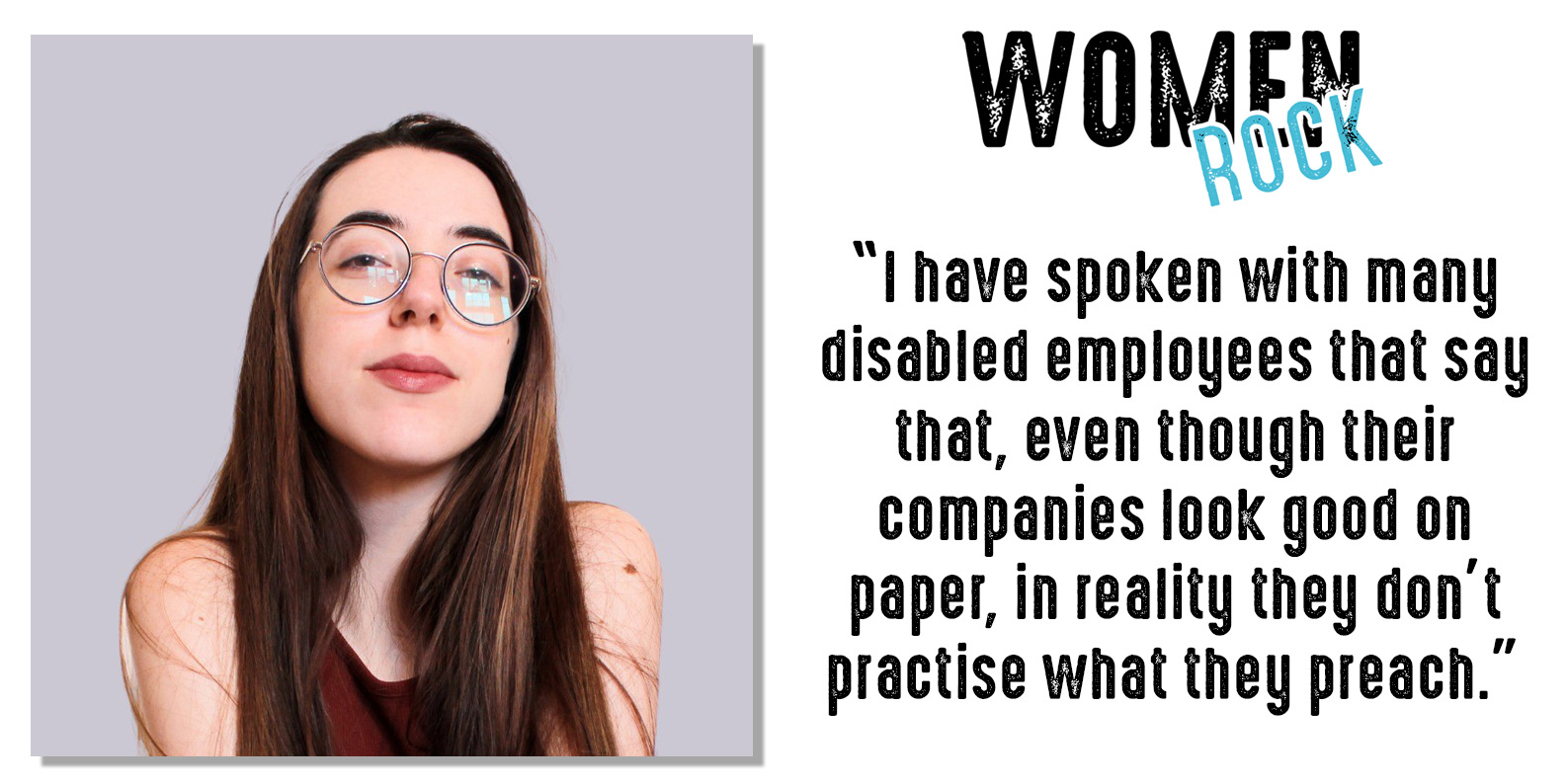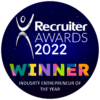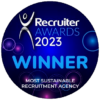
Carla Ruiz Martinez | Bippit
Did you know a mere 22% of autistic adults are in some kind of paid employment? No, neither did we until we met this week’s incredible Women Rocker Carla.
Carla is a woman on a mission. A mission to revolutionise how tech companies engage with and support the neurodivergent community. Carla’s own personal experience as an autistic woman in tech has unfortunately meant she now deals with imposter syndrome and her journey has been more of a fight to get where she is now.
But don’t for a second think this is a story of woe…that would be far from the truth. This is a story of strength, perseverance, integrity and full to the brim with advice for companies who are missing out on the hugely talented minds within the neurodivergent community! From re-writing job descriptions to having an “Employee Directory” Carla’s tips and advice are golden.
As we come to the end of ADHD Awareness Month we celebrate all the neurodivergent folk out there, smashing it in the tech industry and beyond 👊👊👊
HEY CARLA, WELCOME TO WOMEN ROCK. I’M SO EXCITED TO HEAR ABOUT YOUR JOURNEY SO FAR. YOU’RE CURRENTLY A SENIOR DESIGNER AT BIPPIT, HAVE YOU ALWAYS KNOWN YOU WANTED TO BE IN TECH?
Hey there! I’m so happy to be a part of Women Rock – thanks for the warm welcome!
You know, diving into Tech wasn’t initially on my radar. University days had me dreaming about design studios. All the projects and examples shown were rooted in those environments, making them seem like the ultimate dream. But, as it turns out, many of these studios weren’t my kind of place. With their heavy drinking culture and endless social events, they weren’t exactly a great fit for someone like me with autism.
Now that I work in Tech, I realise it is where I was meant to be. I love the challenges that come with a product, how to make users’ journeys smoother, the neverending path to innovation… There is always a new challenge for me. And Tech companies are usually pretty good in terms of benefits: I get tons of perks at Bippit, such as ‘Me Days’ for when I am not feeling myself, and professional coaching.
And here’s the best bit: Tech is bursting with companies driven by meaningful missions. Take Bippit for instance. One of their core objectives is ensuring everyone has equal access to financial education. This is close to home for me. Growing up, I saw the financial struggles my family faced, which made me wary of spending on myself. My understanding of money was skewed, to say the least. But, thanks to guidance from my coach at Bippit, I’ve managed to fix my relationship with finances and even set aside a budget for mental health therapy. Tech is changing people’s lives, and I love being a part of that.
WHAT HAS BEEN YOUR BIGGEST CHALLENGE TO DATE?
Being taken seriously.
In one of my first jobs, I was rejected. They had gone with somebody who, according to them, had more experience. Surprisingly, a few days later, they told me I was hired. When I joined the company, their designer reached out to me because she didn’t agree with how they had acted.
She let me know the first time I was not hired because I am Spanish and the other candidate was British. But the other candidate wasn’t great, so they got rid of them and hired me instead. The designer had insisted on hiring me from the start: I had done very high-quality work and she didn’t understand why they would go with somebody that didn’t fit the job requirements.
During my time there, I always went above and beyond, despite frequently being met with racist comments from both clients and my boss. On my last day, my boss tried to make me work for free on a personal project for him, lying to me and saying it was a company project. When I challenged him about this, his response was a threat. Needless to say, I was very happy I left.
But that made me realise a grim reality: as a foreign disabled woman, it will take a lot of work to be taken seriously. I have proven my expertise: at the age of 23, I was headhunted to become a Senior Designer, an accomplishment that not many people can claim. But this isn’t enough for many businesses.
There was always a designer who was thought to be better than me, just because he was a man and he was older. Regardless of the fact that they would ask me to teach them how to use their design programs; regardless of the fact that every time-critical or important project was assigned to me; when it came to who would be getting a promotion, they would tell me either the man would become my senior or they would hire an external “old man” to do that job.
In my current company, I am trusted and valued. They listen to me. I finally have a say in things. It has taken me 3 years of hard work, nights of study and improvement, tons of scary projects and tears, lots of showing people my worth and being ignored…
As a result of how I have been treated in the past, I now deal with imposter syndrome. We need to teach women and girls we are worth it. We work very hard to get where we are, nobody gifts us anything. We have to work twice as hard than our male counterparts to be taken seriously. We actually have to prove ourselves, time after time, to have a say in meetings that, on top of that, talk about our area of expertise. It is ridiculous.
AND YOUR BIGGEST SUCCESS?
Would you class being stubborn as a success? Honestly, it’s the main reason I am here. I never gave up.
Many times I thought: “go back to Spain. There is a warm room and nice food waiting for you. Your family is there.” But I also knew that going back to Spain would have meant no future for me. Finding a job there is hard, finding a job that allows you to have a life is impossible. Salaries are very low, benefits are non-existent, and treatment of autistic people is poor, to say the least. Giving up would have meant living in my parents’ house for the rest of my life, with a job (if I was lucky enough to get one) that would barely pay for food.
I am proud of fighting so much. I am proud of all the nights that I cried and didn’t give up. I am proud of all the times I told myself “It will get better, you are good, you just need that little push.” I am proud of not listening to the many rejections I got.
Having the skills that I have wouldn’t have mattered if I went back to Spain.
Women face many rejections in the workplace, regardless of our skillset, just for the fact of being a woman. We need to be stubborn to succeed. Always remember, you are here because of all the work you have put in. If they don’t value you, it’s their loss.
WHY IS DIVERSITY IN TECH AND MORE SO DESIGN SO IMPORTANT?
I love this question! I talk about this at work all the time.
First of all, diversity is good everywhere. Teams that are diverse make better decisions 87% of the time, according to Forbes1. Having diversity also ensures young people have a role model. Did you know that I wanted to be an astrophysicist? But with a lack of female role models in astrophysics, I couldn’t picture myself there and ended up being drawn to design.
Diversity is especially important in Tech because not having diverse teams has dire consequences.
Artificial Intelligence (AI) models have been mostly built, trained and tested by white men2. As a result, AI has a bias against People Of Colour (POC), women, LGBTQIA+ people, neurodivergent people… Did you know that Joy Buolamwini, a Black scientist in Boston, found out that an AI system recognised her better when she wore a white mask? Three experts have flagged this issue, but not many companies are listening.
Leaving AI aside, there are tons of issues with products, particularly with their design. Let’s have a look at websites.
WebAIM Million does an annual accessibility analysis of the top 1 million homepages. In 2023, it found that 96.3% of homepages had WCAG 2 failures4. WCAG, or the Web Content Accessibility Guidelines, is a set of recommendations designed to ensure that web content is accessible and user-friendly for individuals with disabilities. Despite recent efforts in diversity awareness, in the last 4 years the detectable WCAG issues have only been reduced by 1.5%.
This is astonishing, considering how many guidelines there are out there indicating how to make what we do accessible. I have found that many times, this is due to a lack of diversity in the teams involved.
A recent example of that was an advertisement by the Barbie movie5. Yes, the recent Barbie movie! I know it’s not technology, but it is a reflection that regardless of budget or size of the team, you need diverse people in order to make the best decisions. I saw on LinkedIn a post where they showed an underground stop sign. The Barbie movie team had covered the sign with a sticker. The stop now read Barbiecan instead of Barbican. The poster had praised the cleverness of the marketing team. People were applauding how witty it was. But I didn’t find it funny.
First of all, British people may know what Barbican is, but someone like me, who is not native to the UK, doesn’t. So I wouldn’t have a clue of where I am. Second of all, I am autistic. And one of the things I have because of autism is no sense of direction. I cannot tell buildings or cars apart. I get lost going to the shop next to my house, the shop I can see from my window by the way. I can’t use GPS either. So imagine how I would feel arriving at the station, getting off the underground and seeing that sign. Add to this the fact that I do not understand train announcements because of auditory processing issues, and you get an incredibly anxiety-inducing situation.
The Barbie team didn’t have the intention to hurt anybody. But by not having disabled people in mind, they did.
Talking about social media… Almost all posts I see don’t use CamelCase! CamelCase ensures screen readers can read the hashtag, improves readability, and creates a more user-friendly experience for all. I always let the authors know, but this is something that could easily be fixed by improving a company’s diversity. Did you know LinkedIn doesn’t use CamelCase in the “Talks about” section? You can see this in people’s profiles that have creator mode ON.
Going back to design in Tech, accessibility issues happen ALL the time. Most apps I have on my phone aren’t accessible for colour-blind people or people with visual impairments. Not to mention the use of incredibly saturated colours, which gives me migraines because of my autism (I have sensitivity to light). There is no way to turn these down, so you have to deal with it.
And don’t get me started on senseless trends… There was a “minimal” trend in design not a long time ago where everybody wrote the text as small as possible, and as tight as they could. It was unreadable, but they did it all for the sake of what they considered aesthetic. This is going to be a controversial opinion, but as designers, we have the duty to put people first. What we like doesn’t matter. If we want to make something aesthetic, we should make a personal project, or something artistic rather than a product that people are going to use, or a document people are going to read.
DO YOU MIND IF WE TALK ABOUT NEURODIVERSITY AND SPECIFICALLY AUTISM? I STARTED WOMEN ROCK ALMOST 6 YEARS AGO AND IT WAS A PLACE FOR DIVERSITY BUT MAINLY AROUND GENDER. HAVING GONE THROUGH MY OWN JOURNEY BACK WHEN I WAS 12 AND MOST RECENTLY THIS YEAR WITH ANOTHER DIAGNOSIS, I WANT TO MAKE THIS A PLATFORM FOR REAL INCLUSIVITY. WHAT IS YOUR BIGGEST PIECE OF ADVICE FOR SOMEONE WHO IS AUTISTIC LOOKING FOR A ROLE IN TECH RIGHT NOW?
My biggest piece of advice is to pay special attention to the way a company writes its job posting: it can tell you so much about how they treat disabled candidates, and how they will treat you once you are employed.
If they start with the benefits, it’s a green flag. Most companies write the benefits at the end as if this was a chore rather than something to be proud of. Why are they not shouting about them? Are they embarrassed? They probably know they aren’t offering enough. They probably also treat benefits as a tick-box exercise. Make sure to keep an eye on what benefits they offer as well. Pension is not a benefit, it is compulsory by law6. So unless they are giving you above minimum contributions (3% on the employer’s side), and they mention this, I would treat it as a red flag.
Also, do they talk about diversity, or are they limiting it to that disclaimer that all companies have to include? You know, the statement that means absolutely nothing. That one that says “Oh, we are an equal opportunities employer…” Sure. But then they don’t offer adjustments in the interview. What can I say, I am pretty sceptical of those words. Look for things like interview accommodations. Do they mention they offer any? Do they have an actual statement about diversity? Do they mention any policies?
Visible salary bands are vital too. Otta revealed that women are setting their salary expectations 7-20% lower than their male counterparts7. If a company posts their salary band, it makes it easier and fairer for everybody, as we don’t have to guess what the company will offer.
Keep an eye on how they write the description. Do they want a wizard or have they written an actual job description? Autistic people like me take things very literally. So if you tell me you want a design wizard, I am expecting you to hire a cat wearing a witch hat. But if you call me by what I am, a senior designer, and give me a detailed list of requirements and responsibilities, then we are talking.
And last but not least, check if they have any other autistic employees. Stalk their LinkedIn. If you find one, message them. It doesn’t hurt to ask for information, and nobody is better than an autistic employee to tell you how that company actually is for us.
Remember, only 22% of us are in employment, 16% in full time paid employment8. Being unemployed is no reflection on you. Struggling in your job because of a lack of adjustments, is no reflection on you. It is a reflection on the many companies that refuse to support disabled employees. Don’t forget: your skills are valuable, we have unique abilities as autistic individuals that make us key team players.
If you ever need to talk to someone, feel free to send me a Direct Message (DM) on LinkedIn!
THERE IS A HUGE AMOUNT OF GREENWASHING AROUND, COMPANIES STATING THEY ARE ‘INCLUSIVE’. I’M WITH YOU THAT INCLUSIVITY ISN’T A TREND OR A MARKETING STRATEGY. WOULD YOU BE ABLE TO SHARE YOUR TOP 3 TIPS ON WHAT A COMPANY CAN DO TO TRULY BE INCLUSIVE?
I recently wrote an article about this for Neurodiversity in Business, you can read it here: “The Power of Autistic Minds: How to Tap into It and Why You Should”
My top 3 tips would be:
- Revamp your job postings.
Start with the benefits! Show that you are an actually inclusive employer, be proud of what you offer. Have disabled people in mind when creating and expanding your benefits offering: for example, professional coaching is very helpful for autistic people because it is hard for us to access the workforce and the education system is not made with us in mind. After listing your benefits, make sure to write about interview accommodations. By being proactive you are letting us know you are an employer we can trust. In the role description, be as descriptive as possible and avoid vague language. You can read more about this in the article I listed above. - Educate yourself and your workforce.
But do not put that responsibility on your disabled employees’ shoulders A lot of companies rely solely on disabled employees to educate the workforce. This is often unpaid and adds to the already heavy weight we have to lift every day, as society does not adapt to include us. A good way to educate yourself and your workforce is to invite external speakers to talk about it. These workshops allow employees to ask any questions they may have and it is also a great opportunity to train managers. Another way to educate the workforce is having an Employee Directory, just like we do at Bippit, where employees can write about themselves, their hobbies, how they like to be managed, their preferred mode of communication, how they like to receive feedback… It’s a great way to learn about adjustments, and it also makes disabled peoples’ lives easier. For example, as an autistic person, I struggle with socialising. It drains me so much to think about conversations I am going to have. By reading the Directory, I can think of topics to bring up or maybe things we have in common ahead of time. It also removes the weight from my shoulders of having to meet everybody when I first join a company.
This Directory also helps others in how to give me feedback: for instance, I need direct language and examples when given constructive feedback. I prefer written communication over verbal because I struggle with auditory processing issues. It is a win-win situation for everyone.Make sure to also follow disabled voices online. Lived experiences are vital in creating a better environment. For example, I post a lot of tips for both employers and employees, you can check my LinkedIn profile here. Thanks to one of my posts, many people learned about the Sunflower Lanyard scheme. It is a card you can order with your hidden disability and it lets other people know how to help you. It is super useful in airports. You could link these profiles to a Notion page, or maybe share them in Slack, so your employees can have a look at them.
On top of that, you can follow organisations like Neurodiversity in Business, who post interesting reports and articles on how to make businesses a better place for disabled people.
- Practise what you preach.
I have spoken with many disabled employees who say that, even though their companies look good on paper, in reality, they don’t practise what they preach. This is usually due to a lack of actionable policies and unclear reporting processes. Yes, you may have the policies written down, but are they actually being followed? Are you creating a safe space for disabled employees to report if something bad has happened? Or if they have any opinions on how to improve the workplace. To ensure policies are followed, you need to provide training for everybody, including C-Suite. You also need to have a feedback loop with employees, perhaps submit an anonymous survey every quarter to check how things are doing, if policies are being followed and how to improve. I have seen so many employee surveys that don’t include this information!But being a great employer isn’t limited to policies. You should take an active part in the support of disabled people during the year. For example, run a charity event during Autism Awareness Month to raise funds for an autism charity. Outside of awareness months, run workshops to educate the workforce, and ensure work activities are inclusive by offering remote options on top of in-person events (you could have a remote pizza cooking class!)…
WHAT’S NEXT FOR CARLA?
Since I was diagnosed in early 2023, I realised there is a lack of disabled women role models in design. I want to become that role model for young girls so that when they are in university, they see me and realise it’s possible to go up the corporate ladder as a disabled person. I also wanna be a support for women who are pursuing design careers. I want to be there for them, I want to listen to them, talk about our experiences, and inspire them to keep fighting for the place they want and deserve!
And I want to transform companies because I have the privilege of having experienced how amazing it is to work for an actually inclusive employer. I have already spoken to quite a few to improve their approach to diversity! For example, a very well-known design studio now offers remote options for disabled employees thanks to a conversation I had with them.
Going back to wanting to become a role model, most of the big names in design are men. All the seniors I have met are neurotypical men. Did you know that some 79% of female designers have changed careers to another field?9 This is due to the many inequalities we face.
I am hoping to one day become a Chief Creative Officer (CCO), or something along those lines, to show everybody it is possible, despite it being a male-dominated industry. We need more women in leadership, we need more people fighting for equal opportunities. And that is what I want to do!
ANY BOOKS OR PODCASTS YOU’D RECOMMEND?
Definitely! My favourite book is The Little Prince. I know the author didn’t have autism in mind, but The Little Prince is the perfect depiction of autism in my opinion. He is curious, he sees the world differently. Unlike adults, in this case, society, the Little Prince questions everything (just like autistic people do!).
He places a lot of value in what he likes, and he is very specific about it: his special interests are his rose and his lamb. Two particular entities. Even though there are millions of roses and lambs, he likes those specific two. Autistic people are very similar. For example, I am obsessed with the side profile of the boars in Rimworld10. Yes, that specific. My boyfriend is not allowed to eat the boars in the game because of this, and all boars need to be pets and given immortality or I will cry.
People don’t understand the love the Little Prince has for his rose, just like some neurotypical individuals don’t understand us whenever we talk about our interests. “Grow up” is two words I hear a lot as soon as I mention my passion for Rimworld boars’ side profiles.
The Little Prince follows specific routines on his planet, just like we have our own routines we don’t break. And when these break, both the Little Prince and autistic individuals suffer.
Also, the Little Prince challenges the nonsensical universe he lives in. He is not like the banker who hoards stars or the king who rules on his solitary planet. When he meets them, he asks questions that unsettle them. Questions that, to everybody on Earth, make sense. Because we don’t live on a planet that hoards stars as currency. But think about all those times that autistic people have raised their voices and others haven’t understood our struggles. Maybe we don’t hoard stars, but we are forcing people to go back to in-person environments when it’s not necessary. And when autistic people say no, we are told to deal with it or face unemployment. Society doesn’t comprehend the Little Prince because he is different, and they try to make him fit their norms to no avail. Autistic people have to constantly challenge our environment. Things were not made with us in mind, we have to fight to create a world where we are welcome.
When I feel misunderstood, alone, lost, or doubting myself, or anything negative, I open my Little Prince book and I read it. It is very short, but it fills my heart with so much warmth. So yes, I recommend The Little Prince to both autistic and neurotypical individuals. I think it will help others understand our perspective. And it can be a great support for autistic people when they aren’t feeling well.
In terms of podcasts, The Sunflower Conversations is a must. It features a wide range of people with hidden disabilities talking about their experiences. This is very helpful to ensure proper accessibility in Tech: there are so many things we do not know because we don’t get to hear disabled people’s lived experiences very often! But it is also great on a personal level: we need to constantly improve our knowledge of all disabilities, as well as diversity matters, to be able to make this world a better place for everybody.
IF YOU WERE A SONG, WHAT SONG WOULD YOU BE?
You know the song Phoenix by Raizer? It’s about overcoming challenges and rising stronger. It also speaks about revolution. Honestly, it feels like it’s about me.
At the age of 20, I was faced with a tough decision: continue my studies in Spain or find work in the UK. I chose to work.
It was very challenging, I was living in a tiny house with four other people, with no electricity in my room. I remember being incredibly cold because the windows were broken and the heater didn’t work (obviously, no electricity). The bed I slept in was broken.
I went from surviving on 10p a day to becoming a Senior Designer in just 3 years. All of this while struggling with undiagnosed autism and tons of mental health issues: anorexia, body dysmorphia, depression, anxiety… Life was hard, I cried almost every day but I never gave up. I was stubborn, I have always been. And it paid off.
Being an autistic woman, I’ve faced my fair share of challenges. But like a phoenix, I rose above them. I once believed my autism held me back, especially remembering my school days, where I had no friends. But now, it’s my strength!
Because of the experiences I have lived, I am now advocating for autistic people in the workplace. I have started my own revolution, just like the phoenix in the song.
Thanks, Carla, you rock 🤘
Interview by Alicia Teagle






